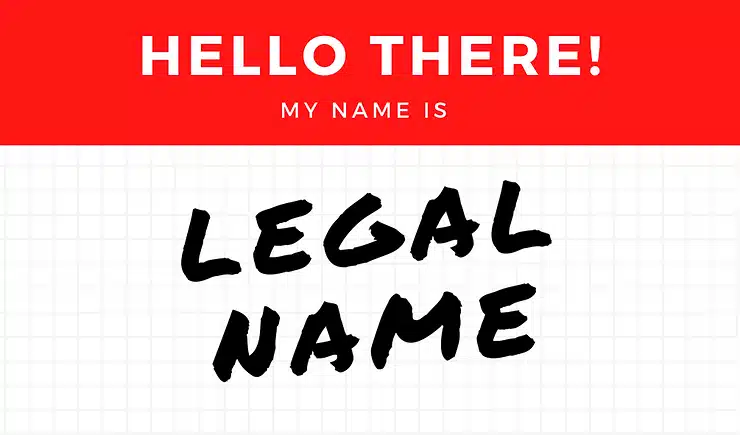At some point during an initial consultation, an intake form is presented to a prospective client. The first line on the form asks for the person’s legal name. A legal name is usually the name shown on a US birth certificate unless it was changed subsequently through a name change proceeding, marriage, adoption or other court order. Sometimes, there is a noticeable hesitation to place pen to paper. I point out that line and remind them to provide their legal name. After a few beats, they lift their head and say, “my name is a little complicated.”
How can a name be complicated? Often it starts at birth. A name on the birth certificate may never have been used in life. Shortened versions of longer names or nicknames may end up as the name that is used for legal documents, marriage certificates, armed forces documentation, passports, and driver’s licenses. After 9/11 and especially with modern enhanced driver’s licenses, names receive greater scrutiny. If the name listed on the birth certificate does not match later issued governmental identifications the renewal process for identity documents will be more difficult.
For estate planning purposes, setting up Powers of Attorney with an individual with multiple names requires the use of AKA’s (Also Known As) listing every name that is associated with that person. Financial institutions may have one name on file when an account was opened, but a new enhanced driver’s license may show a completely different name which would raise a red flag when account changes, including the addition of a POA, are initiated. Concurrent usage of a maiden name and married name is a common example where AKA’s are necessary.
Another name issue concerns different generations of one family sharing the same name. If suffixes like junior, senior, III or IV are utilized and referenced by family members in legal documents then there is enough differentiation to avoid problems. If no suffixes are in use then 2 or 3 generations may share the same exact name. Wills and Trusts that mention a singular name that could describe multiple people can create major headaches. New York law provides an opportunity for parties to the Will to attempt to clarify confusing language or name references through the use of a Construction Proceeding held in Surrogate’s Court. In this instance, carrying on a family naming tradition could lead to unintended consequences and lost money. Identifying nicknames can be placed in testamentary documents to avoid confusion in this situation.
AKA’s also come into play with regards to Probate and Administration petitions. A decedent’s name listed on the death certificate may be different from the name listed on an estate asset. Petitions should list all the names belonging to that decedent so that an Executor or Administrator can gain control over that estate asset.
If you have knowledge of your name complications, be proactive. Making sure that your enhanced driver’s license name matches your financial account name will avoid legal problems in the future. Take the time to look over your estate planning documents and ask loved ones to check theirs to ensure name consistency. Contact the professionals at Sloan and Feller today to go over legal name issues and estate planning.


